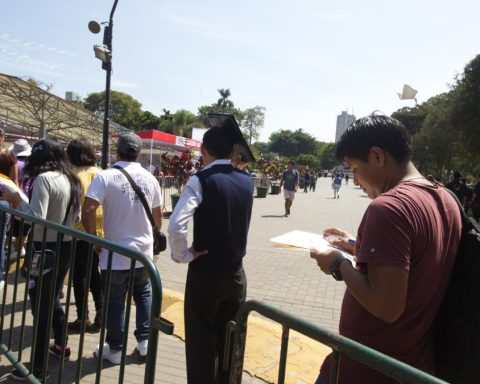Russia and Ukraine are at war, and for many egyptians, lebanese, yemenis and others arabs this could mean less bread on the family table, because these two countries are their main suppliers of wheat.
“If war disrupts the supply of wheatIn the Arab world, heavily dependent on food imports, “the crisis could trigger new demonstrations and instability in several countries”, warns the Middle East Institute.
Sudan, which has seen its reserves decrease since the cessation of international aid in retaliation for the military coup at the end of 2021, seems to have taken the initiative.
When the war broke out, the Sudanese number two was in Moscow to discuss trade with Russiathe world’s leading exporter of wheat.
Because the generals in power in this Arab country in northeast Africa have not forgotten that, in 2019, the dictator Omar Al Bashir was overthrown under the pressure of a popular revolt born by the tripling of the price of bread.
Bread is already a luxury for millions of hungry people in Yemen at war, laments Walid Salah, a 35-year-old civil servant who is still waiting for his salary in Sanaa. “Most people can barely afford basic food,” he told AFP.
the war in Ukraine it will only “make things worse. We thought we had hit bottom, but no, it’s even worse,” exclaims David Beasley, executive director of the World Food Program (WFP), also in Yemen. “We get half of our grain from Russia and UkraineThis war is going to have a dramatic impact.”
– Reserves of wheat short-term -The war is also starving 12.4 million Syrians, according to the WFP. The last straw in a self-sufficient country in wheat until 2011 but that, after years of conflict – where Russia helped the regime militarily – had to buy in 2021 “1.5 million tons of wheatmainly to Moscow,” according to the specialized site The Syria Report.
Syria says it will try to distribute the stocks over two months.
Lebanon will have less time after the collapse of the banking system, which plunged 80% of the population into poverty, and an explosion in the port of Beirut that destroyed grain silos in August 2020.
With five ships from Ukraine that they still have to unload, “we only have a month and a half,” Ahmed Hoteit, spokesman for the importers of wheat lebanese.
Typically, “80% of the 600,000 to 650,000 tons of wheat imported come from Ukraine” through ships that arrive in seven days in Lebanon, he explains.
“The alternative now is the United States,” but then the trip will last 25 days, he adds.
In the Maghreb, where the wheat is the basis of both couscous and bread, Morocco increased flour subsidies to $393 million and suspended customs duties on wheat.
A luxury that Tunisia no longer has. In December, the ships refused to unload their cargo of wheat for non-payment, according to the country’s press, where the debt increases as foreign exchange reserves melt.
Tunisia, where 60% of imports from wheat come from Ukraine and Russiahas reserves until June, says Abdelhalim Gasmi, from the Ministry of Agriculture.
Algeria, second African consumer of wheat and fifth world importer of cereals, announces six months of reserves.
Far ahead, Egypt is the first importer of wheat of the world. And the second client of Russia with 3.5 million tons purchased through mid-January, according to S&P Global.
And although in recent years Egypt began to buy elsewhere, especially Romania, in 2021, 50% of its imports from wheat still come from Russia and 30% of Ukraine.

















